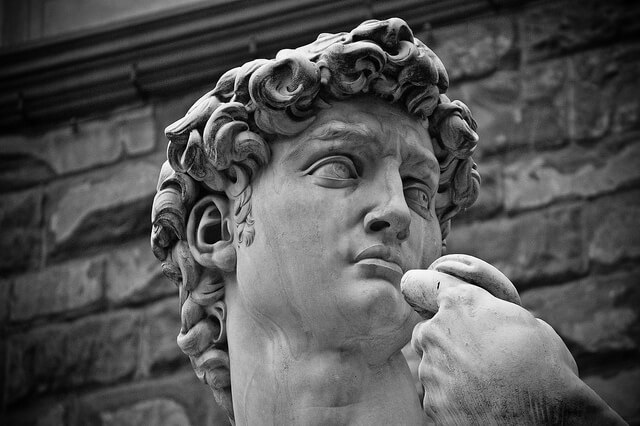
I Samuel 22:1-3
Whatever their politics most people admired and appreciated Ronald Reagan’s optimism and good humor. Those closest to the late President say that if there was one story he delighted in more than any other it was “The Pony Story”. As he told the story, there were twin boys about five or six whose parents were worried about them. One twin was a total pessimist and the other was a total optimist. The parents finally became so concerned for them that they took the twins to a psychiatrist.
First, the psychiatrist attempted to treat the pessimist and to brighten his outlook. He took the little pessimist into a room piled to the ceiling with toys, and the boy burst into tears. “Don’t you want to play with the toys?” the psychiatrist asked. “Yes,” he sobbed, “but I’d only break them.”
Next the psychiatrist sought to treat the optimist twin. Trying to dampen his indomitable outlook the psychiatrist took the optimist to a room piled to the ceiling with horse manure and announced: “This is for you”. But instead of wrinkling his nose in disgust the little guy yelped for joy. He enthusiastically dropped to his knees, and began digging in with his bare hands. “What do you think you’re doing?” the psychiatrist asked. Beaming the little boy replied: “With all this manure there’s got to be a pony in here somewhere!”
After having just completed teaching a series on the life of David, it occurs to me that David was a man who habitually looked for a pony in piles of manure. Whether David was facing down the giant Goliath, fleeing Saul through the wilderness, or battling against the Philistines, David lived expectantly. Time and again we read how David believed that God was intimately involved in all of his life and would work for his good.
In today’s text from I Samuel, David has just escaped the grasp of the Philistines (I Samuel 21), and now is fleeing the armies of King Saul. We might say that the manure is piled pretty high for David! Then add to this the fact that “everyone” in “distress….debt…discontented gathered to David”. Hard to soar with the eagles when running with those in distress, in debt, and discontent! Concerned for his parents’ safety David takes his mother and father to the King of Moab and asks, “‘Please let my father and mother come to you, until I know what God will do for me.”
I am struck by David’slast phrase: “until I know what God will do for me.” We find this attitude of expectancy running throughout David’s life. David believed (1) that there is a God; (2) that God loved him; and (3) that God was intimately involved in all of his life. At this difficult time in his life David hasn’t a clue as to what God will do for him, but he expects that God will “do for” him.
How about you? Do you expect God to “do for” you? Do you expect him to bless you in spite of your circumstances? Perhaps you are in a broken relationship, a hospital room, a financial quagmire, or a long run of bad breaks. Are you ready to expect God to “do for” you, and expect God to bless you?
Frequently in our conversations in The Living Room Internet radio program, Henry Rojas has mentioned the impact of Watchman Nee on his life and ministry. Watchman Nee (1903 – 1972) was one of the great Christian leaders in 20th century China. During his 30 years of ministry Nee started many of China’s underground churches, wrote numerous books, and made many disciples. Following the Communist Revolution Nee was persecuted for his faith and spent the last 20 years of his life in prison. Watchman Nee knew hardship and suffering but he had an expectancy that God would “do for” him, “do for” the Chinese church. I hope that you will take a few moments to ponder a few quotes I have taken from Nee about expecting God’s blessing:
- “We must always look for God to do things beyond our expectations. We must ask God to give us the vision to see the meaning of blessing.”
- “The normal life of a Christian is a life of blessing, and the normal work of a Christian is a work of blessing.”
- “Many times we do not have the capacity to do something. The outward environment is difficult, even impossible. If our eyes are fixed on the circumstances, we will not have any way to deal with them. However, the Lord repeatedly brings us through. These times are the Lord’s blessing.”
- “We must set the things of the past aside. In difficult situations God will do more if our hopes, expectations, and hearts are large. We must never measure God by our capacity. A few loaves of bread can feed four or five thousand people.”
- “When the Lord wants to work a small miracle, He puts me in a difficult situation. When He wants to work a great miracle, He puts me in an impossible situation.”
(The above quotes are excerpts from Watchman Nee’s booklet, “Expecting God’s Blessings”)
To expect to be blessed, though unworthy, that is the great secret!
Grace and peace,
Tim
P. S. If you would like to read Watchman Nee’s booklet “Expecting God’s Blessing”, you can find it online free of cost.
photo by Theron LaBounty



